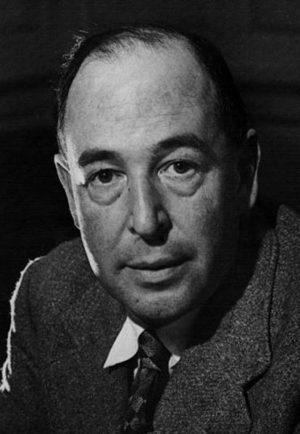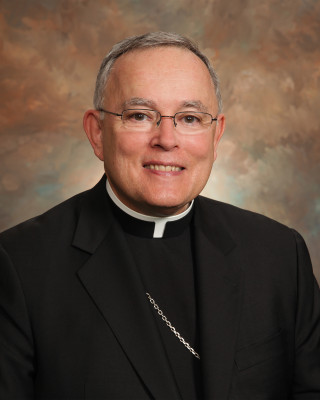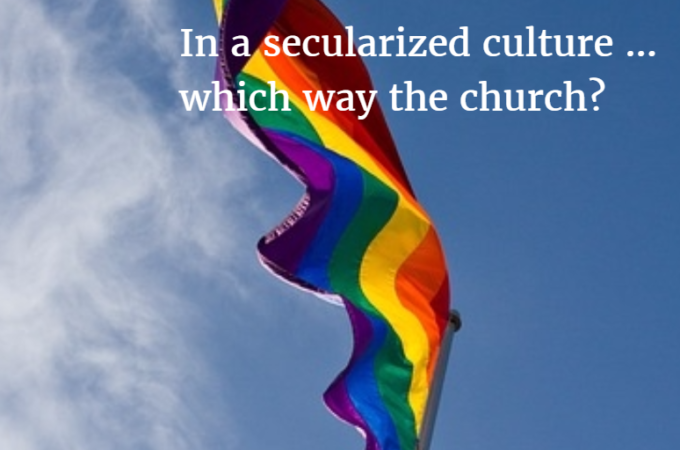Last week, Philadelphia Archbishop Charles Chaput powerfully spoke about today’s secularized culture. His discourse at the University of Notre Dame 2016 Bishops’ Symposium is a must-read for all Christian leaders in America who desire to be salt and light at this challenging moment in our nation’s history. Following are excerpts from the address, with my commentary. While Archbishop Chaput is addressing a Catholic audience, his message applies to all faithful Christians. I encourage you to read the whole thing.
He began by urging the church to courageously stand up and fight against the darkness that is closing in around us.
C.S. Lewis … said, Christianity is a ‘fighting religion’—not in the sense of hatred or violence directed at other persons, but rather in the spiritual struggle against the evil in ourselves and in the world around us, where our weapons are love, justice, courage and self-giving.
Many Christians find the idea of fighting against our secularized culture unpalatable. They have no interest in fighting a so-called “culture war,” believing that doing so is unloving and un-Christian. As Darrow said in a recent post, many Christians prefer to be “nice” instead of “dangerous.” Now more than ever, we need to resist the temptation to conform to destructive cultural trends, but rather, to fight—to fight for the truth about God, about creation, and about the true nature and dignity of all people. Indeed, fighting for the truth is the most important way we show love for our neighbor. So we must fight, but not with worldly weapons, as Archbishop Chaput reminds us.
Reflecting on how the culture has so dramatically secularized in our generation, Archbishop Chaput picks up a theme we’ve addressed often on this blog, i.e. how a change of language always precedes a change of culture.
 One of the things wrong with our country right now is the hollowing out and retooling of all the key words in our country’s public lexicon; words like democracy, representative government, freedom, justice, due process, religious liberty and constitutional protections. The language of our politics is the same. The content of the words is different.
One of the things wrong with our country right now is the hollowing out and retooling of all the key words in our country’s public lexicon; words like democracy, representative government, freedom, justice, due process, religious liberty and constitutional protections. The language of our politics is the same. The content of the words is different.
This is, tragically, all too true. Consider how the word “marriage” has been “hollowed out and retooled” in the past two years alone.
He warns us that if current trends continue unabated, it will inevitably lead to a breakdown of constitutional government and the rule of law. We will be left with a totalitarian system run by technocratic elites.
Voting still matters. Public protest and letters to members of Congress can still have an effect. But more and more of our nation’s life is governed by executive order, judicial overreach and administrative agencies with little accountability to Congress … People feel angry because they feel powerless. And they feel powerless because in many ways they are.
He continues:
America’s cultural and political elites talk a lot about equality, opportunity and justice. But they behave like a privileged class with an authority based on their connections and skills. And supported by sympathetic media, they’re remaking the country into something very different from anything most of us remember or the Founders imagined … [Their message] is this: Smart people should run things, and most people aren’t smart enough to qualify. But the country shouldn’t worry as long as the really smart people like us – in other words, the technologically and managerially gifted — stay in charge. So don’t rock the boat with a lot of useless noise from the deplorables.
I wrote about this earlier this year in my post, A Fundamentally Transformed America. This has come about because, as a nation, we’ve now largely cast God aside. Only a minority believe that God is real. Nearly all who wield cultural power in government, law, education and almost every other area no longer believe in God. Instead, they invest hope in science, technology, and an increasingly large state run by highly educated, elite technocrats. Archbishop Chaput put it like this.
Technology and its comforts are now our substitute horizon for the supernatural. Technology gets results. Prayer, not so much – or at least not so immediately and obviously. So our imaginations gradually bend toward the horizontal, and away from the vertical.
He continues:
Religion isn’t ‘real’ in the same way that science and technology are real. And if, as John Kennedy said, our main social problems today are practical and technical, then talking about heaven and hell starts to sound a lot like irrelevant voodoo.
Secularized culture has led to corrosion in the church
The secularization of our culture has had a corrosive and devastating impact on the church, and Archbishop Chaput is unsparing in his analysis.
[Christians] are largely assimilated to, and digested by, a culture that bleaches out strong religious convictions in the name of liberal tolerance and dulls our longings for the supernatural with a river of practical atheism in the form of consumer goods.
He continues:
The Church of our baptism is salvific. The Church where many Americans really worship, the Church we call our popular culture, is therapeutic.
This false, therapeutic “church” is an apostate church according to Archbishop Chaput.
Apostasy is an interesting word. It comes from the Greek verb apostanai – which means to revolt or desert; literally ‘to stand away from.’ [Christians] … don’t need to publicly renounce their baptism to be apostates. They simply need to be silent when their … faith demands that they speak out; to be cowards when Jesus asks them to have courage; to ‘stand away’ from the truth when they need to work for it and fight for it” (emphasis added).
… to be continued
- Scott Allen






